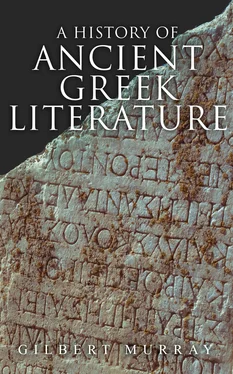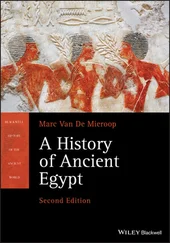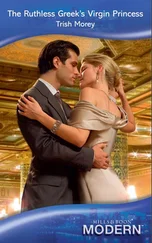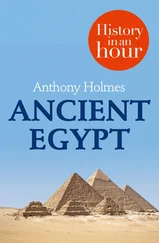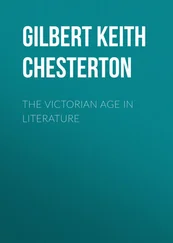The Têlegoneia, * too, though in its essence a mere sequel, making Têlegonus, son of Odysseus and Kirkê, sail in search of his father, just as Têlemachus did, is full of genuine saga-stuff. Odysseus is repeated in his son, like Achilles, like Launcelot and Tristram. The sons of the 'Far-wanderer' are 'Far-fighter' and 'Farborn,' and a third, by Calypso, is 'Far-subduer' (Têledamus). The bowman has a bowman son, and the son wanders because the father did. And the end of the Têlegoneia * is in the simplest saga-spirit. Têlegonus unknowingly slays his father, who gives him Penelope to wed and protect. He takes all the characters to Kirkê in the magic island; she purifies him of blood, and makes Têlemachus and Penelope immortal; finally, the two young men marry their respective step-mothers, Odysseus apparently remaining dead. That is not late or refined work. 'Eugamon' ('Happy-marrier') of Cyrene must have seemed a grotesque figure to the men of the fifth century; he was at home among those old saga-makers who let Heracles give Deianira to Hyllus, and Œdipus take on the late king's wife as part of the establishment.
The critical questions suggested by the rejected epics are innumerable. To take one instance, how comes it that the Little Iliad * alone in our tradition is left in so thin a dress of conventional 'Epic' language that the Æolic shows through? One line actually gives the broad a and probably the double consonants of Æolic, νùξ μέν ὲην μàμἄσσα, λàμποà δ επετελλε σελáνα. Others are merely conventionalised on the surface. Possibly some epics continued to be sung in Lesbos in the native dialect till the era of antiquarian collection in the fourth century B.C. or after; and perhaps if this poem were ever unearthed from an Egyptian tomb, we should have a specimen of the loose and popular epic not yet worked up by Ionic genius. Its style in general seems light and callous compared with the stern tragedy of the Milesian Æthiopis * and Sack of Ilion. *
Among the other rejected epics were poems of what might be called the World-cycle. Of these, Proclus uses the Theogony * and the Titan War, * of which last there exists one really beautiful fragment. The Theban 'Ring,' which was treated by grammarians as an introduction to the Trojan, had an Œdipodea, * a Thebais, * and a Lay of the After-born, * treating of the descendants of the Seven, who destroyed Thebes. The Driving forth of Amphiaraus, * the Taking of Œchalia, * the Phocais, * the Danais, * and many more we pass over.
It was a custom in epic poetry for the minstrel to 'begin from a god,' generally from Zeus or the Muses. 4This gave rise to the cultivation of the 'Pro-oimion' or Prelude as a separate form of art, specimens of which survive in the so-called Homeric 'Hymns,' the word ὓμνος having in early Greek no religious connotation. The shortest of these preludes merely call on the god by his titles, refer briefly to some of his achievements, and finish by a line like, " Hail to thee, Lord; and now begin my lay, " or, " Beginning from thee, I will pass to another song. " 5The five longer hymns are, like Pindar's victory songs, illustrations of the degree to which a form of art can grow beyond itself before it is felt to be artistically impossible. The prelude was developed as a thing apart until it ceased to be a prelude.
The collection which we possess contains poems of diverse dates and localities, and the tradition of the text is singularly confused. The first 546 lines, for instance, are given as one hymn 'to Apollo.' But they comprise certainly two hymns: the first (1-178) by an Ionic poet, on the birth of the Ionian God in the floating island of Delos; the second by a poet of Central Greece, on the slaying of the great Earth-serpent, and the establishment of the Dorian God at Delphi. Further, these two divisions are not single poems, but fall into separate incomplete parts. Athenæus actually calls the whole 'the hymns to Apollo.' The Ionic portion of this hymn is probably the earliest work in the extant collection. It is quoted as Homer's by Thucydides (iii. 104), and Aristophanes ( Birds , 575), and attributed by Didymus the grammarian to the rhapsode Kynæthus of Chios; which puts it, in point of antiquity, on a level with the rejected epics. The hymn to Hermes partly dates itself by giving seven strings to the original lyre as invented by that god. It must have been written when the old four-stringed lyre had passed, not only out of use, but out of memory. The beautiful fragment (vii.) on the capture of Dionysus by brigands looks like Attic work of the fifth or fourth century B.C. The Prelude to Pan (xix.) may be Alexandrian; that to Ares (viii.) suggests the fourth century A.D.
In spite of their bad preservation, our Hymns are delightful reading. That to Aphrodite, relating nothing but the visit of Aphrodite to Anchises shepherding his kine on Mount Ida, expresses perhaps more exquisitely than anything else in Greek literature that frank joy in physical life and beauty which is often supposed to be characteristic of Greece. The long hymn to Demeter, extant in only one MS., which was discovered last century at Moscow 'among pigs and chickens,' is perhaps the most beautiful of all. It is interesting as an early Attic or Eleusinian composition. Parts are perhaps rather fluent and weak, but most of the poem is worthy of the magnificent myth on which it is founded. Take one piece at the opening, where Persephone " was playing with Okeanos' deep-breasted daughters, and plucking flowers, roses and crocus and pretty pansies, in a soft meadow, and flags and hyacinth, and that great narcissus that Earth sent up for a snare to the rose-face maiden, doing service by God's will to Him of the Many Guests. The bloom of it was wondeiful, a marvel for gods undying and mortal men; from the root of it there grew out a hundred heads, and the incensed smell of it made all the wide sky laugh above, and all the earth laugh and the salt swell of the sea. And the girl in wonder reached out both her hands to take the beautiful thing to play with; then yawned the broad-trod ground by the Flat of Nysa, and the deathless steeds brake forth, and the Cronos-born king, He of the Many Names, of the Many Guests; and He swept her away on his golden chariot. " The dark splendour of Aidôneus, " Him of the Many Thralls, of the Many Guests, " is in the highest spirit of the saga.
Of the Comic Poems which passed in antiquity as Homer's, the only extant example is the Battle of the Frogs and Mice, rather a good parody of the fighting epic. The opening is Bœotian; the general colour of the poem Attic. An obvious fable -- followed strangely enough by A. Ludwich in his large edition -- gives it to one Pigres, a Carian chief, who fought in the Persian War. The battle began because a mouse named Psicharpax, flying from a weasel, came to a pond to quench his thirst. He was accosted by a frog of royal race, Physignathos, son of Peleus -- (the hero of Mount Pelion has become 'Mudman,' and his son 'Puff-cheek'!) -- who persuaded him to have a ride on his back and see his kingdom. Unhappily a 'Hydros' -- usually a watersnake, here perhaps some otter-like animal -- lifted its head above the water, and the frog instinctively dived. The mouse perished, but not unavenged. A kinsman saw him from the bank, and from the blood-feud arose a great war, in which the mice had the best of it. At last Athena besought Zeus to prevent the annihilation of the frogs. He tried first thunderbolts and then crabs, which latter were more than the mice could stand; they turned, and the war ended.
Читать дальше
